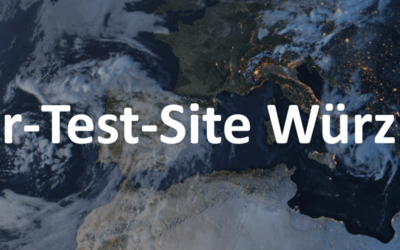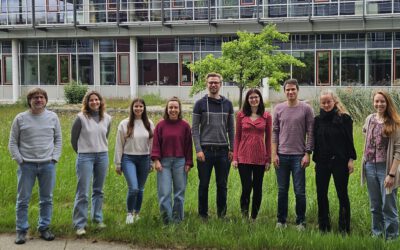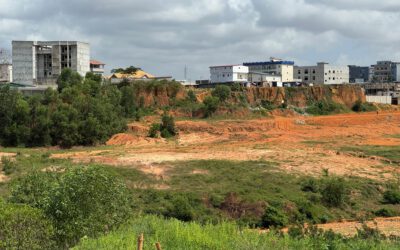On 04.-05.06.2024 part of our team participated in the “Woche der Umwelt” (“Week of the Environment”), organized by the Federal President Frank-Walter Steinmeier and the German Federal Environmental Foundation (Deutsche Bundesstiftung Umwelt, DBU) in Berlin. As one of approximately 190 exhibitors, we presented our project “Ecosystem Services of the Urban Forest: Modeling Using Remote Sensing & Artificial Intelligence” funded by DBU.
Our project aims to comprehensively assess and quantify the ecosystem services provided by urban forests, such as reducing surface runoff, mitigating heat stress, and sequestering carbon. By leveraging remote sensing and artificial intelligence, we systematically characterize trees in Munich and Würzburg to estimate their ecosystem services. Our goal is to support intelligent and sustainable urban planning, fostering resilient green urban infrastructure, and aiding cities in climate change adaptation. This project is a collaboration of the Earth Observation Research Cluster from the Julius-Maximilians-University of Würzburg, the Chair of Forest Growth and Yield Science from TU Munich, the Company for Remote Sensing and Environmental Research (SLU), and the Department of Georisks & Civil Security from DLR, with additional support from UrbanSens. More details about the project can be found here: https://www.woche-der-umwelt.de/wdu-aussteller/julius-maximilians-universitaet-of-wuerzburg/
The “Woche der Umwelt” is an event hosted at the park of Schloss Bellevue in Berlin. It serves as an innovation showcase for environmental protection, featuring numerous exhibitions and specialized forums discussing topics ranging from sustainability in various industries to biodiversity conservation and climate resilience. Attendees have the opportunity to engage with experts and explore innovative solutions for environmental challenges. This event was a fantastic opportunity to communicate the importance of our project, demonstrate the potential of remote sensing, and engage in meaningful discussions that could lead to future collaborations.










